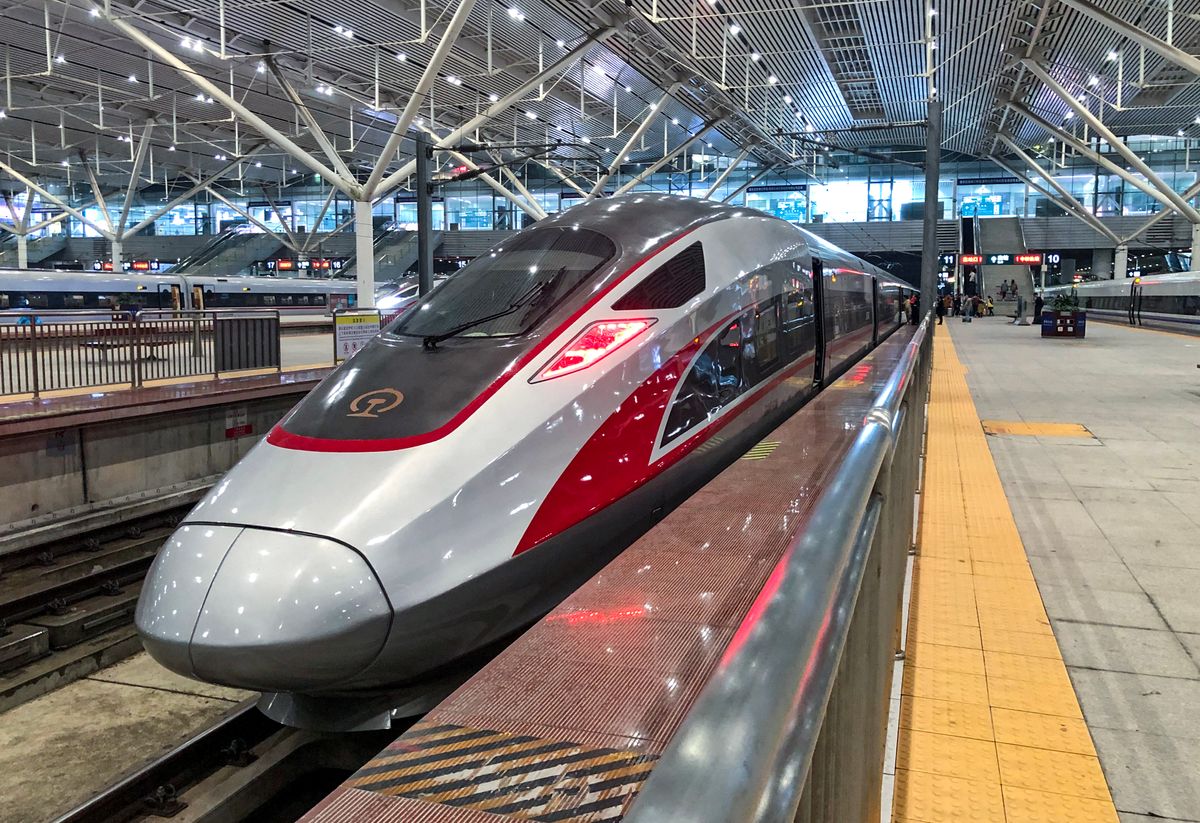Indonesia's China-Funded High-Speed Rail Opens to Hopes and Doubts

The Lede: On Monday, Indonesian President Joko Widodo inaugurated Southeast Asia’s first high-speed railway. It has been a key project under China’s Belt and Road Initiative and is part of a larger effort by Beijing to expand rail connectivity in Southeast Asia.
What We Know:
- The high-speed train is named WHOOSH, an acronym for "Waktu Hemat, Operasi Optimal, Sistem Hebat, which means "timesaving, optimal operation, great system" in Indonesian. The 142-kilometer (88-mile) railway is set to begin commercial operations to link Jakarta with Bandung, the heavily populated capital of West Java. WHOOSH is expected to cut travel time between the two cities from three hours to about 40 minutes. The electric rail system is also intended to reduce carbon emissions.
- It was constructed by PT Kereta Cepat Indonesia-China (PT KCIC), a joint venture between an Indonesian consortium of four state-owned companies and China Railway International Co. Ltd.
- PT KCIC has been running a free public trial of the railway in the two weeks leading up to its inauguration. Widodo, other high-ranking officials, and Chinese Premier Li Qiang have taken test rides of WHOOSH recently.
The Background: Indonesia began the project in 2016. The high-speed rail was originally expected to start running in 2019, but the project was delayed by disputes over land acquisition, environmental issues, and the COVID-19 pandemic. It was originally projected to cost $4.3 billion, but the final project cost ended at approximately $7.3 billion, much of which was funded by China as part of the BRI.
Likely Outcomes:
- The completion of this project can be touted by Beijing as a successful milestone in its foreign investment in Southeast Asia as it competes with the U.S. to spread influence among the rising ASEAN countries. The semi-high-speed railway linking China’s Kunming with the Laotian capital Vientiane is another such example. These projects are part of a larger plan by China to build railway infrastructure through Thailand, Malaysia, and Singapore as well.
- Ultimately, it is too early to determine whether these projects will be considered successes in the long run as it will depend largely on the adoption and use of these transport systems, which is uncertain at this point. Many locals who commented amid the inauguration and free trial said that the fares were too high and that many people would prefer traditional transportation methods between the two cities. Low-ridership is also expected to offset any environmental advantages compared to cars and traditional trains. If the railway does not reach profitability, Indonesia could find itself in debt issues that have appeared among other BRI projects.
- In the case of a poor outcome for the high-speed railway, the U.S. and Western countries would likely point to the project as another example of China’s debt trap strategy to highlight the danger of BRI cooperation and promote the Western infrastructure development alternatives in the geopolitical competition for influence in the Global South.
Quotables:
"It gives this nation pride. This is the first high-speed train in ASEAN countries…I don't think that it will have a significant impact on our economy…The high-speed train would have a significant [economic] impact if it connected Jakarta [and] Surabaya.” - Piter Abdullah, executive director at the Segara Research Institute
“It will create more economies of scale and increase efficiency because the mobility of talented people between the two cities is higher. Knowledge and idea sharing will increase economic productivity, plus improve business proximities. Economic growth of these two regions will increase.” - Arief Anshory Yusuf, professor of economics at Bandung’s Padjadjaran University and visiting fellow at the Australian National University
Good Reads:
Indonesian president launches Southeast Asia’s first high-speed railway, funded by China (AP)
Southeast Asia’s first high-speed train – a boon or bust for Indonesia’s economy? (CNBC)
China Belt and Road: Indonesia opens Whoosh high-speed railway (BBC)
